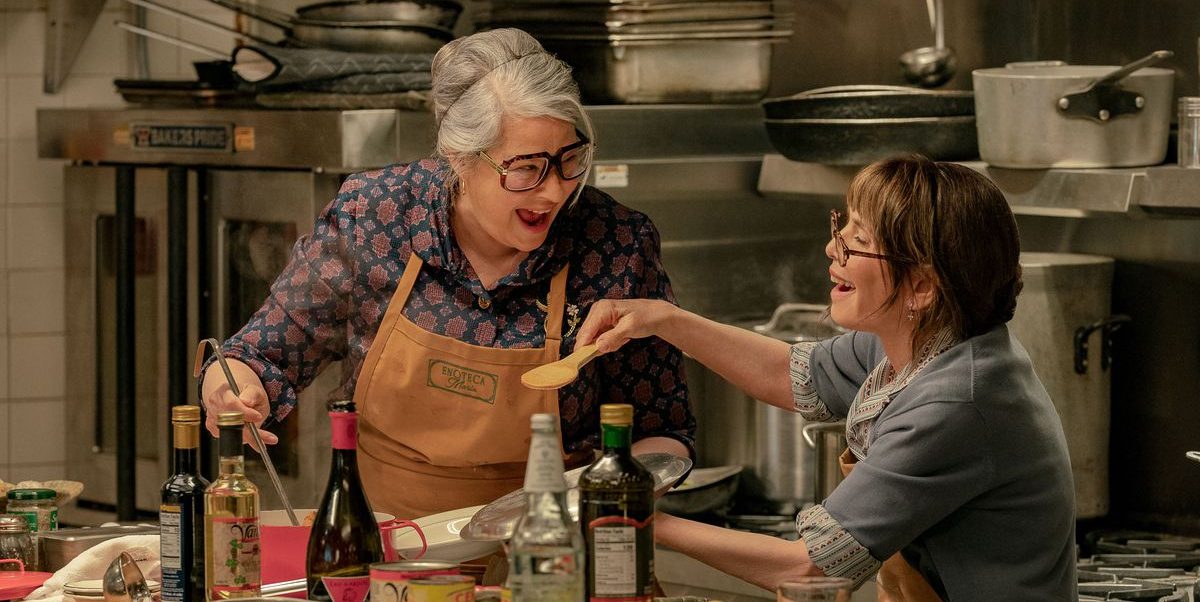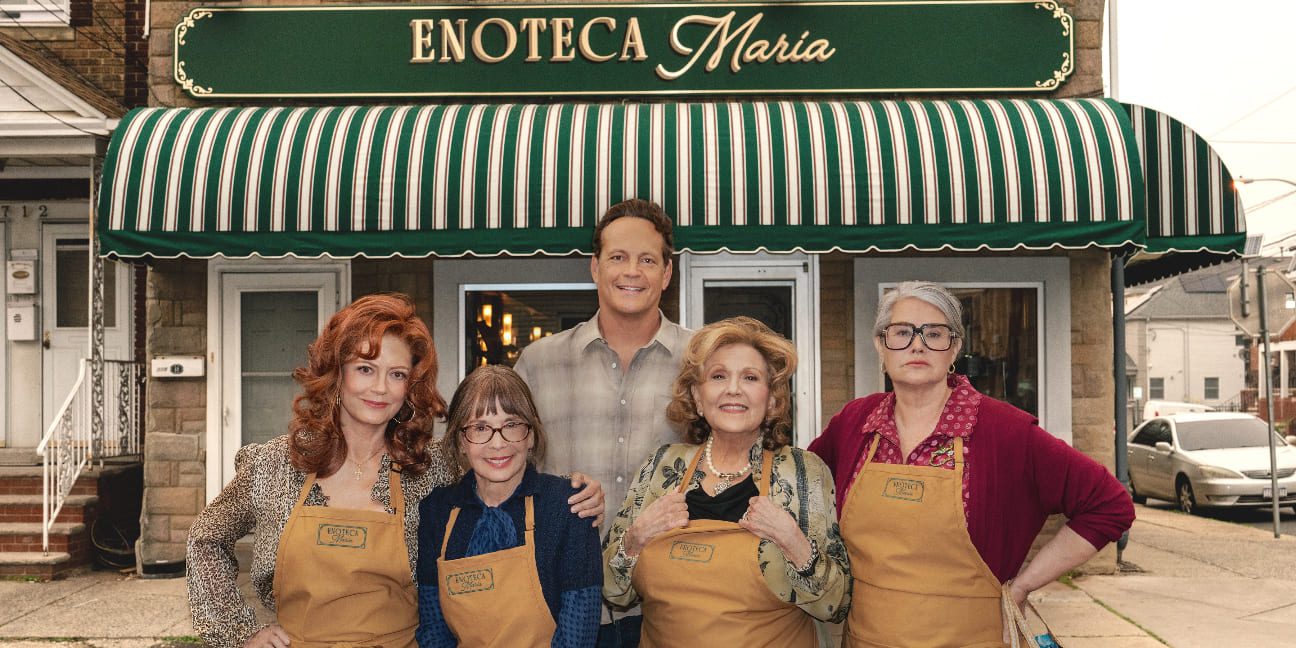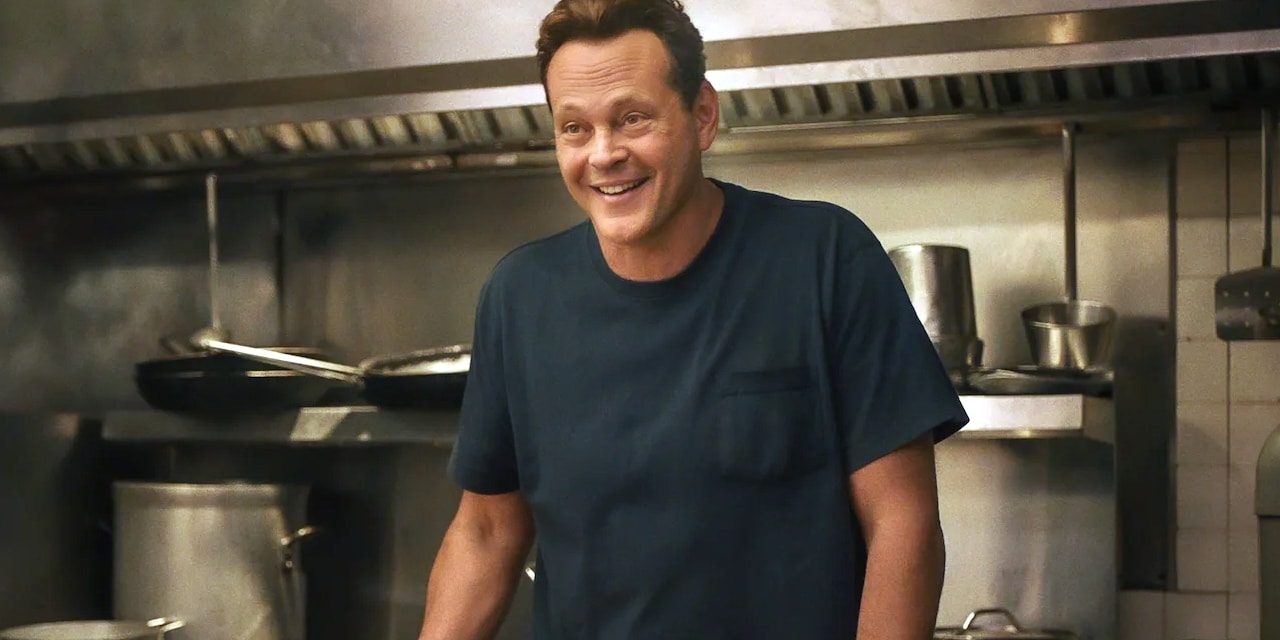Directed by Stephen Chbosky, Netflix’s ‘Nonnas’ tells the story of Joe Scaravella, a man who reinvents his life following the loss of his Italian mother and grandmother. During his childhood, Scaravella fell in love with their Italian recipes and the comfort food they would cook on a daily basis. However, the positivity dries up in the aftermath of their deaths as he finds himself bereft of any purpose. After some emotional counseling from his friends, Scaravella decides to start a restaurant centered around his love for Italian food and the legacy left behind by his mother. Most intriguingly, he hires grandmothers (nonnas) as the primary chefs in the operation, adding an unconventional twist to the cuisine industry’s standard practices. The comedy movie touches upon numerous heartfelt themes in a narrative that brushes against reality in an aloof and resonant manner.
Nonnas is Inspired By the Life of a Real New York City Restaurant Owner
Written by Liz Maccie, ‘Nonnas’ is based on the experiences of Jody “Joe” Scaravella, a Brooklyn, New York City native who opened the restaurant Enoteca Maria, which primarily hires grandmothers as its chefs. While dramatizing certain elements and characters, the movie portrays Joe’s inspiring journey from a transportation worker to a restaurant owner fairly authentically. Scaravella launched the restaurant in 2007, naming it after his mother, Maria. However, what really makes it stand out is its cultural links to Italy and employing grandmothers from around the world as the primary cooks in the kitchen. As depicted in the film, the elderly staff brings a homely vibe and a sense of coziness to proceedings, helping customers enjoy their food in a traditional environment.
Focusing on Scaravella in particular, it is interesting to see how his journey began following the loss of his grandmother, Domenica, his mother, Maria, and his sister. The death of three key matriarchal figures in his life prompted the Brooklyn native to seek a connection with his Italian roots, specifically through the medium of good food and cooking. He particularly missed the cooking of his grandmother, who held an integral spot in his heart. As such, the idea to start a restaurant was entirely incidental and was not something he had any long-term plans for in his mind. Additionally, he held no prior experience in the cuisine business besides an interest in cooking, which he picked up from his mother and grandmother. Therefore, in reality, Enoteca Maria was supposed to be a form of “comfort” for Scaravella.

Interestingly, while there is some element of dramatization in the storytelling, ‘Nonnas’ portrays one scene quite accurately. The incident in the film where Teresa gets down on her knees to pray for a better outcome for the restaurant is actually inspired by a real-life scenario. One of Scaravella’s friends prayed similarly to the priest Padre Pio, hoping for customers to show up. Miraculously, they did. It serves as a reminder of how real-life events can often be even more confounding than exaggerated fictional claims. Thus, the heartfelt messages at the heart of the movie are embodied in even more crystal-clear form in Scaravella’s real-life journey, showcasing how his business helped show a new way to do things in a complicated industry.
Nonnas Depicts the Struggles of Running a Business Against Difficult Odds
Enoteca Maria was established in 2007 when Joe Scaravella moved from Brooklyn to Staten Island, New York. In its initial phase, the restaurant was only open to Italian grandmothers for its chef positions. The nonnas shown in the movie are fictionally conceived and are not based on any specific nonna working at the Enoteca Maria. However, they might be vaguely inspired by the three real-life grandmothers who were hired at the start of the business – Carmelina Pica, Adelina Orazzo, and Teresa Scalici. All three of them bear some resemblance with the nonnas portrayed but not enough to be a like-for-like stand-in. The same is true for the character of Olivia, who becomes a significant love interest for Scaravella in the movie. To that end, certain characters and events are exaggerated in specific ways.

It is also worth noting that the film heightens the anxiety and challenges the protagonist faces in trying to turn the restaurant into a success story. As per reports, the restaurant took off right from the start due to its novel concept. Some issues surfaced during the 2020 COVID-19 pandemic due to concerns over the elderly staff’s health. However, things went back to normal in the aftermath. In an interview with Time Magazine, Scaravella said, “This is not a restaurant. It walks like a restaurant, smells like a restaurant, talks like a restaurant, but it’s not a restaurant. It’s a cultural exchange.” Enoteca Maria’s nonna-hiring policy helps it stand out against its competitors, especially as it symbolizes a link with traditional values. In 2015, the restaurant saw a change in its recruitment drive as nonnas from around the world were brought in to serve the best dishes from their cultural diaspora.
For Scaravella, the Enoteca Maria business is a thriving store because it taps into the knowledge, wisdom, and authentic backgrounds of its nonnas, who drive the ever-changing menu. “In the beginning, when we were all Italian nonnas,” Scaravella said. “There might have been a little bit of jealousy. You know, who makes the best lasagna, or who makes the best sauce?” To some extent, that competitive element is depicted in the bond between Antonella and Roberta in the movie, who are at odds with each other constantly because they hail from different parts of Italy, thereby contributing to contrasting sensibilities. Still, it also showcases the magic of working together as a team while also trying to be profitable and useful to the overall community.
Read More: Nonnas Ending Explained: How Does the Restaurant Become a Success Story?


